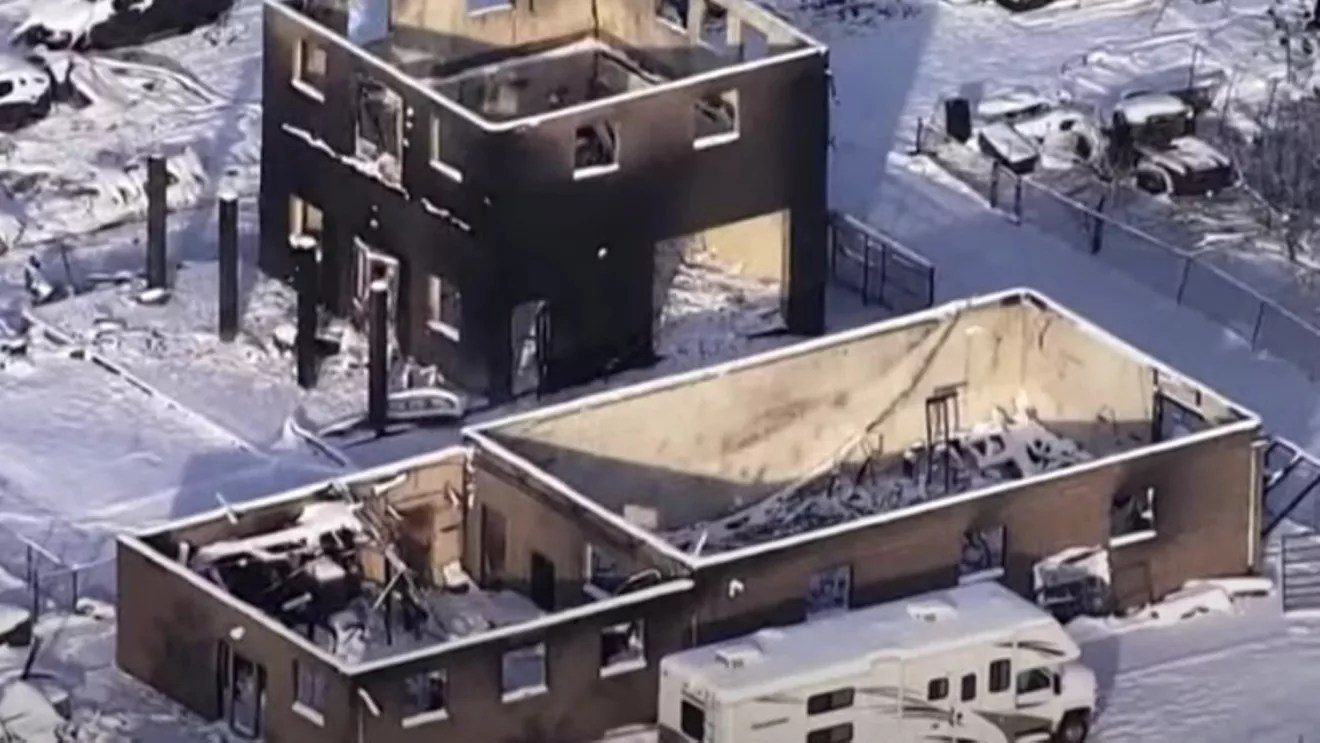
9News via YouTube

Audio By Carbonatix
The latest report on rent in metro Denver from Apartment List reveals that rent decreases narrowed during January in many communities, and rent rose in three others where demand exceeded supply. And there’s another factor that could soon be putting upward pressure on rent: The December 30 Marshall fire in Boulder County, which destroyed more than 1,000 residential buildings.
“It’s too early to say whether the Marshall fire had a meaningful impact on rent prices in Boulder and Denver counties,” says Drew Hamrick, senior vice president and general counsel for the Colorado Apartment Association, explaining that data on rent rates is released quarterly.
But he can anticipate one stress on the local rental market. “The most significant cause of rising rent prices in Colorado is the housing shortage,” Hamrick notes. “Over the past several years, the demand for new rental housing has outpaced the rate of new construction. The Marshall fire may have exacerbated the housing shortage and, in that sense, produced some corresponding increase in rent prices.”
After the main Marshall blaze was extinguished, inspectors with the Boulder Office of Disaster Management, among others, conducted wide-ranging assessments to determine the number of residential structures partly or wholly ruined. Here are the estimates as of January 6:
Denver, make your New Year’s Resolution Count!
We’re $10,000 away from reaching our $50,000 year-end fundraising goal. Your support could be what pushes us over the top. If our work has kept you informed and connected this year, please consider making a contribution today.
City of Louisville: 550 structures destroyed, 43 structures damaged; actual value of residential damage is approximately $229,199,184
Town of Superior: 378 structures destroyed, 58 structures damaged; actual value of residential damage is approximately $152,757,462
Unincorporated Boulder County: 156 structures destroyed, 48 damaged; actual value of residential damage is approximately $131,255,944
These figures come to 1,084 residential structures destroyed and 149 residential structures damaged, bringing the overall loss, as estimated by the Boulder County assessor, to $513,212,589.
The roster doesn’t differentiate between single-family homes and apartment complexes, but the latter certainly weren’t spared. A Pueblo Chieftain account of firefighters touring the area in the wake of the conflagration describes “the rubble of destroyed apartment buildings lying next to other apartments standing intact behind them.” And in October, an unrelated fire made 81 units in the Whittier Apartment Complex on Boulder’s Pearl Street uninhabitable.
Cary Bruteig, principal of Apartment Appraisers & Consultants, estimates that 9,300 new rental units were delivered in the greater Denver area in 2021. That may sound like a lot, but it was “the lowest total in three years,” and “inventory is low in metro Denver,” Hamrick points out.
In the third quarter of 2021, he notes, “we saw a 3.8 percent market-wide vacancy rate, the lowest in recorded history, and Q4’s rate of 4.3 percent continues to reflect a historically tight rental market. The Marshall fire destroyed more than 1,000 housing units, so that’s going to impact supply, though it’s still too early to say how much.”
In the wake of the fire, Hamrick continues, “the Colorado Apartment Association identified more than 2,000 vacant rental units in metro Denver, enough to accommodate every resident displaced by the Marshall fire.” Additionally, “the housing directories compiled by the Colorado Apartment Association and Boulder Area Rental Housing Association saw many rental housing providers offer discounted rent to residents displaced by the Marshall fire.”
To make sure that trend did not go in the other direction, Colorado Attorney General Phil Weiser sent letters to Airbnb, Zillow, Vrbo and REColorado in late January, expressing “concern over reports that some landlords excessively raised their prices after so many Coloradans were displaced from their homes after the fire,” according to a release from his office. “The potential for thousands of Coloradans who suffered great loss to be then faced with excessively and unjustifiably high housing costs is not just a legal problem, but also a moral one,” Weiser said in a statement. “Coloradans are protected under the law from illegal price gouging, and online rental companies need to understand this risk and do what they can to stop businesses and individuals from preying on our neighbors during such challenging times.”
And times were challenging even before the fire. “There are enough units to house wildfire victims, but going forward, we must prioritize the development of new rental housing, or vacancy rates will remain low and rents will continue to rise,” Hamrick says. “That’s just the market at work.”
Click to access the list of damaged buildings, a searchable map and the Boulder County Wildfire Fund.